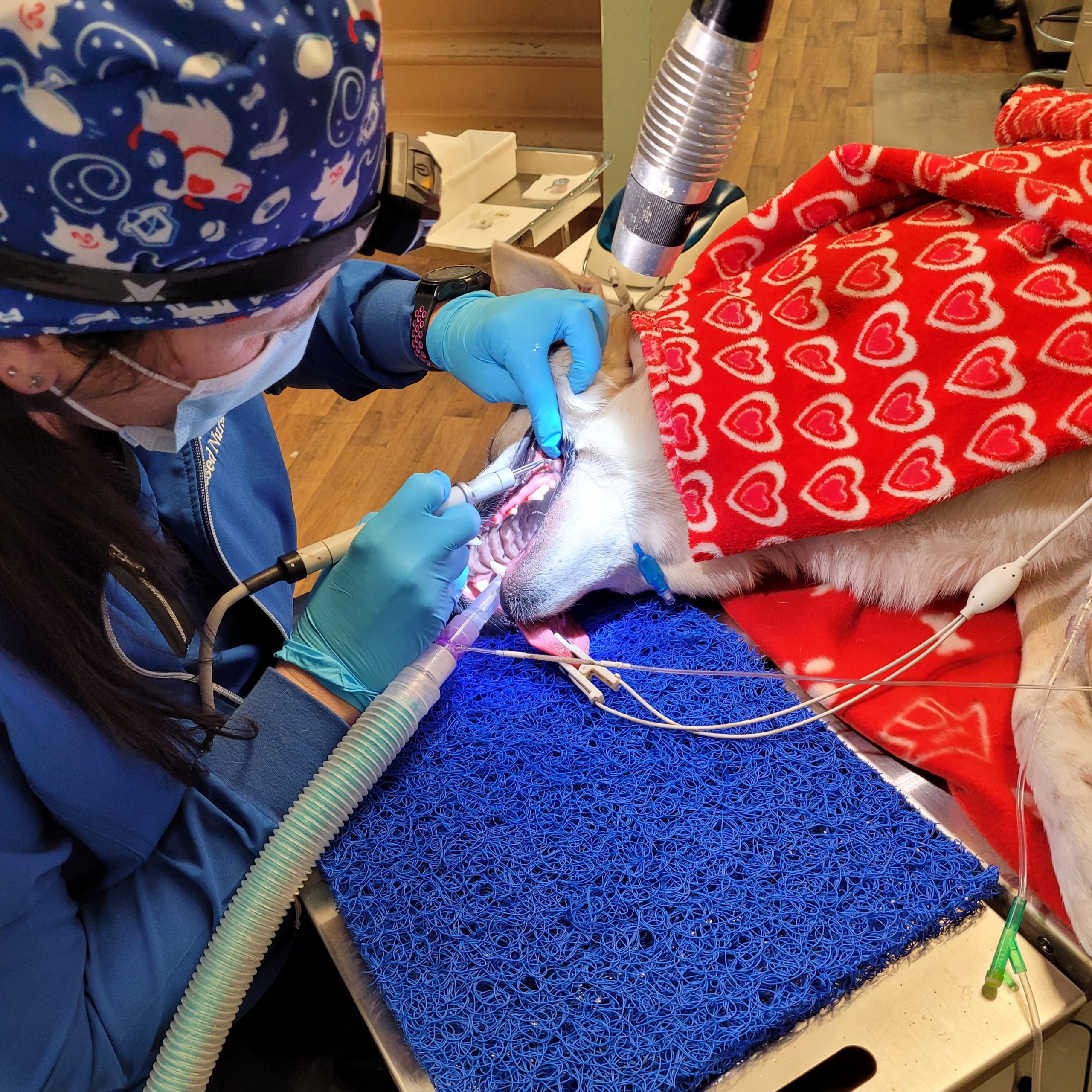Dentistry

Tartar and plaque buildup on your pet’s teeth can cause both minor and serious health problems. Good oral hygiene is so important. Aside from bad breath, your pet may develop gum recession, cavities, periodontitis, and loose teeth. Research data has shown a link between dental disease and many other common health problems such as heart, liver, lung and kidney disease. During a physical examination, Aspen Vet veterinarians can recommend a dental program suited specifically to your individual pet’s needs. Ensuring proper dental care calls for a joint effort between the pet owner and the veterinarian. In addition to regular deep cleanings at the veterinary hospital, dogs and cats should also have a regular tooth brushing daily, or at least twice a week.
Prophylactic Cleanings
Preventative dental cleanings, under anesthesia, are recommended at regular intervals to preserve oral health. Just like human teeth, pet teeth accumulate plaque and tartar. Without providing appropriate veterinary dental care for your pets, periodontal disease develops, leading to severe gingivitis and ultimately tooth loss; this preventable condition affects over 80% of pets over the age of two.
Prophylactic Cleanings Involve:
- Pre-anesthetic workup, including physical examination and bloodwork
- Anesthesia
- Oral examination and probing
- Ultrasonic scaling to remove tartar from above the gumline
- Hand scaling to remove tartar from below the gumline
- Dental x-rays if needed
- Polishing to remove scratches created during the above process
Treatment of Preiodontal Disease
When left untreated, periodontal disease progresses to a point where more advanced therapies are required. Our doctors are trained and equipped for the following procedures:
- Interpretation of dental x-rays
- Complete periodontal examination
- Extraction of teeth, both simple and surgical
- Open curettage (removal of tartar by surgically lifting up portions of the gums for better exposure)
- Guided tissue regeneration (attempted repair of large pockets with use of bone-regeneration materials and surgical repositioning of gum flaps)
Annual Visits to Your Primary Care Veterinarian
Most dental problems can be identified during your pet’s annual physical exam. Our Veterinarians will recommend a cleaning with/without extractions based on the severity of the dental disease they can see upon exam. If these issues are not properly identified and corrected, dietary problems will develop. This can be minor weight loss, or can be as serious as a life-threatening obstruction from improper chewing and poor muscle coordination in the GI tract. Talk to your veterinarian at each exam about your pet’s dental health.
Learn more about us and the care we'll be giving your pets
Contact us today and schedule an appointment


